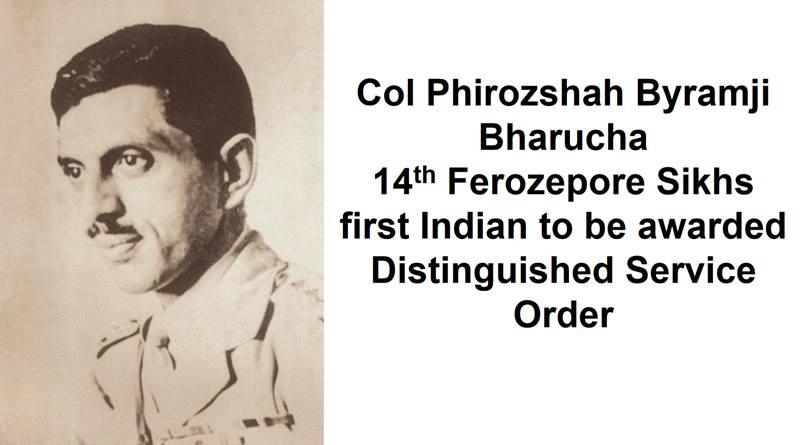On Facebook I read the following post:
“Col. Phirozshah Byramji Bharucha, who led the 14th Ferozepur Sikh regiment in the grueling hard fought key Battle of Gallipoli during World War I in 1915. While the 1981 Mel Gibson movie “Gallipoli” glorified the heroics of the Australian battalions during the Gallipoli campaign, the reality is that the fiercest, most difficult first wave of attacks to gain ground on territory held by the enemy was led by the gallant Sikhs under Col. Bharucha, which then cleared the way for the Aussies to advance. In doing so, the brave 14th Sikh front line battalion suffered a 80% casualty rate. “

Being an Aussie of Indian extraction, having served in the RAAF as an officer, I am always interested in the under-documented role of Indians at Gallipoli, so I began to read up on the King’s Own 14th Ferozepore Sikhs, which fought at the Battle of Krithia, with a loss of 80% of its strength, with only three Indian officers surviving. I was intrigued how an Indian doctor attached to a regiment could have “led” it.
Captain Heerajee Cursetjee
Yes, there was a Parsi doctor with the 14th Ferozepore Sikhs , but it was Lieutenant (later General) HJM Cursetjee, DSO. (Link here). His great grandfather’s statue in Bombay is best known as “Khada Parsi”. A detailed account of his service life is at the British National Army Museum. Do check it out.
Yes, Lt Cursetjee also earned a DSO and he was the Parsi with the 14th King’s Own Ferozepore Sikhs, but a different Parsi also with a DSO to his credit has been incorrectly identified with Gallipoli.
So where was Captain PB Bharucha during WW1? He was in the Indian Expeditionary Force “D” in Mesopotamia (link here, Page 4) (also here, Page 440). He was later a prisoner of war (link 1 here) (continued here). He did fight the Turks, but in a different theatre of war. He was indeed the first Indian to win the Distinguished Service Order. I salute his service.
So here is a corrected image below that should be shared if you want to attribute the right person.
